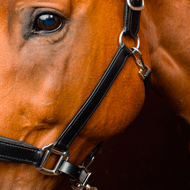Practised hands needed for 'project' horses

Project horses require experienced, patient owners.
Experienced horse owners are urged to consider using their skills to rehome a "project" horse or pony from World Horse Welfare (WHW), as the charity struggles to cope with the volume of equines coming through its doors.
WHW recently launched the Project Horses and Ponies category to help its residents find owners with the skills and patience to meet their needs.
The charity has reported a 73 per cent increase in the number of horses coming through its doors over the past year, compared to 2012.
Currently housing around 340 horses, the charity urgently needs to make space for others in need of rescue and rehabilitation.
Potential owners of a project horse or pony, however, must have considerable experience and be prepared for a long-term, but rewarding project.
Wilful grey mare Flicka, for example, is around 10 years old and can be grumpy and obstinate when being groomed or asked to do something she doesn't like. She requires sedation when having her feet trimmed and needs lots of care and attention to gain her trust. However, the charity says these flaws could become a thing of the past with the right owner.
UK support officer Tanya Element said: "These horses will need a rehomer who has the time, patience and knowledge to bring the horses on in a rare opportunity that means the rehomer will reap the rewards of rehabilitating a neglected horse themselves."
As well as introducing the project horse category, WHW is trialling other new methods to make rehoming a horse easier, such as lowering rehoming fees. The charity is also looking into lowering its membership fees for people who rehome horses.
View the project horses on WHW's website or contact the charity on 01953 497238.



 The Federation of Independent Veterinary Practices (FIVP) has announced a third season of its podcast, Practice Matters.
The Federation of Independent Veterinary Practices (FIVP) has announced a third season of its podcast, Practice Matters.